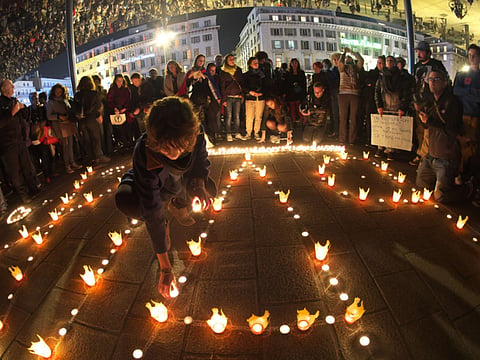We must support each other now more than ever
In this day and age, anyone with a smartphone can be a journalist

As France entered yet another period of national mourning following the barbaric attacks, many people expressed their negative feelings towards leaders of Western countries.
The incident that hit the European city of light was not the only one that happened this month, indeed, Lebanon, Nigeria, Cameroon, Iraq, Somalia, Egypt and Palestine amongst other countries have been subject to similar atrocities and targets of either state-sponsored terrorism or designated terrorist organisations such as Boko Haram and Daesh.
Firstly, I want to dismiss the argument brought forward by numerous individuals, that the mainstream media outlets are to blame for the lack of coverage when it comes to attacks in places such as Africa or the Middle East. There are people who might want to call this practise “professional finger-pointing”. Never before has information been made easier to access than in the 21st century. We live in a time where billions of social media statuses are updated on a daily basis onto different social media platforms and further millions of pictures, data and information are uploaded online. We have so much choice of information that is available and are in a position where we can freely choose which media outlet to follow in order to get the information we might need based on our interests.
Secondly, the usage of hashtags and consolidation of headlines. Citizen Journalism, in other words, citizens playing an active role in the process of collecting, reporting, analysing, and disseminating news and information, is the new concept of journalism.
Anyone with a smart phone can in practise be a journalist and cover events directly from the scene or comment on an ongoing issue using a hashtag. However, as recent events have shown, our Western counterparts seem to have a better understanding of the usage of hashtags. The terrorist attacks in Beirut, just a day before the Paris assaults, were only trending on Twitter for a short while. This is due to two key issues. Firstly, the sad state of affairs that terrorist attacks in that part of the world have become near-daily events unlike in Europe and are therefore not highlighted in the same light, highlighted in the same light, and secondly, the fact that leaders of neighbouring Arab nations are not quick enough to show solidarity with the victims and their families.
One thing we can all do, no matter which part of the world we might be in, is collectively condemn all types of attacks on humanity, show solidarity with our fellow human beings and support each other in difficult times such as these.
— The reader is a German editorial director based in Abu Dhabi


